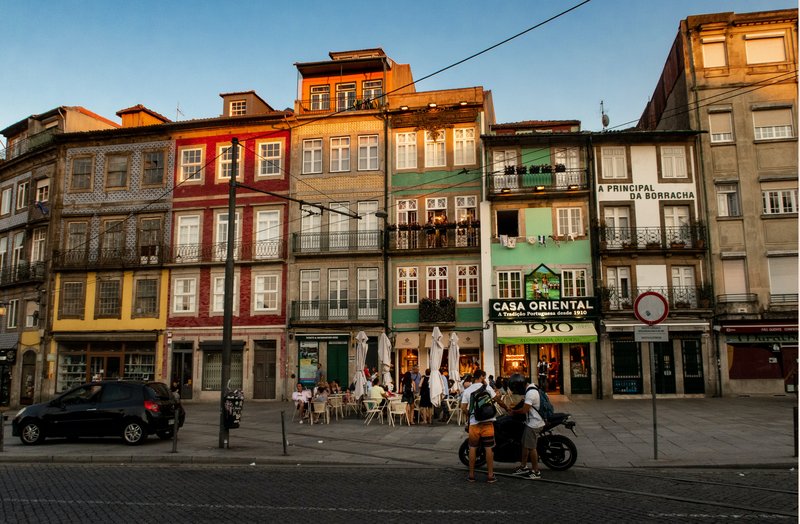Article 65 of the Constitution of the Portuguese Republic states that "Everyone has the right, for themselves and their family, to housing of an adequate size, in conditions of hygiene and comfort and which preserves personal intimacy and family privacy". The following paragraphs of this article set out the state's responsibilities for ensuring this.
The question is: are we complying with this right?
The reality shows us that we are not. The housing crisis in Portugal is not recent, however, we have seen it worsen sharply, experiencing multiple crises that result in an increase in the cost of living (increased expenditure on food, energy, housing), with no accompanying increase in Portuguese incomes.
More than a social right, access to decent and adequate housing is a transformative factor, with implications for health and self-esteem, and therefore inseparable from our physical and emotional well-being. Despite its central importance to individual well-being, there are several challenges and vulnerabilities that limit the full realization of the Right to Housing in Portugal.
EAPN Portugal - the European Anti-Poverty Network - has long expressed its concern about the difficulties faced by the most vulnerable groups in accessing housing - one of the many dimensions of poverty and perhaps the one whose resolution could be the basis for alleviating all the others.
What reality do we currently have?
- The data (from the ICOR - Survey of Living Conditions and Income) on Housing for 2021 tells us that 18.8% of families living in poverty were living in overcrowded conditions, while the rate was 8.7% for the rest of the population. In the same year, 24% of the population at risk of poverty were overburdened with housing costs, compared to 1.8% for the rest of the population. The cost of housing consumes people's income, leaving little for other needs such as food, energy, education, health or leisure.
- Energy poverty issues are also pressing. Eurostat data indicates that in 2022, 9% of the population of the European Union would not be able to keep their homes adequately heated. In Portugal, this percentage was 17.5% (among the seven countries with the highest rates).
- Since 2015, average house prices have risen very significantly, accentuating social and territorial inequalities. According to the Housing Price Index, the figures for the year 2022 indicate that in the European Union there has been a 48.9% rise in prices since 2015, but in Portugal this rise has been 90.2%. As far as rents are concerned, over the last 10 years the increase has been 18% in the European Union, but the increase in Portugal has been 28%.
- However, it should be noted that the difficulties in accessing housing are also based on factors outside this area - such as the precariousness of employment and the reduction in families' disposable income.
- Social housing is difficult to access due to its insufficiency, which leads to long waiting lists, and administrative procedures that further limit accessibility. In addition, social housing neighbourhoods are often poorly resourced and stigmatized, contributing to the segregation of people living in poverty.

- While the crisis in access to housing is affecting more and more people, it is also true that there are groups that are more vulnerable and suffer more:
- The lack of affordable housing can hit women especially hard - when renting on your own is totally out of reach, people become dependent on those they cohabit with, including in situations of violence (and we know that women continue to be a group more affected than men by low incomes at work and in retirement, and greater dependence on other family members);
- People with disabilities still face unique barriers when it comes to accessing housing;
- The undignified conditions in which many immigrant workers live are well known;
- We still haven't managed to provide a response to the homeless population;
- Many of Portugal's Roma communities live in undignified situations (shantytowns proliferate across the country without any concrete knowledge of how many people live there;
- And let's also think about the young people who leave state care, foster care institutions, as they lose, to a large extent, the support they have had up to now.
With the lockdowns during the COVID-19 pandemic, we had already become more aware of the inequalities in terms of safety, comfort and privacy in housing. And the difficulties in accessing housing don't just affect the most vulnerable families. They are also increasingly affecting middle-income families, not only because of rising rents, but also because of the interest rates associated with bank loans.
There are many difficulties and challenges ahead, but here I will highlight the ones I consider essential:
- If, on the one hand, this is an urgent problem, it is important to remember that it has been successively "postponed" by different governments and, consequently, the problem has tended to get worse. This phenomenon is also European and is largely due to tourism, foreign investment in real estate, both for living and investing, and large real estate funds.
- In many cases, families' low incomes are one of the main factors contributing to these difficulties in accessing housing, as well as job insecurity and precariousness;
- The absence of a real estate market regulator and the lack of state intervention and participation in this market are two critical aspects;
- It is also important to reflect that a fundamental part of the services and support mechanisms in the areas of housing support and the fight against energy poverty are made available digitally and using sometimes indecipherable language. It is important to guarantee the accessibility of this information to all recipients, while also investing in increasing the digital literacy of all those involved and/or creating alternative mechanisms to improve accessibility to this information when this is not possible.
- The support that exists through state bodies (IHRU) and now more recently through the Recovery and Resilience Plan is not adapted to the national reality and regional differences: many of the requirements that are requested in specific support measures are not possible for ordinary citizens to achieve. If even local authorities often don't have enough technical staff to access these instruments, what will an individual citizen do?
Let's also think about the consequences that these limitations on access to housing have on people's lives. Their multiple impacts.
- I've already mentioned the existence of people who are dependent on those they live with, and who can't get out of situations of conflict or even violence.
- People are often forced to accept undignified living conditions, in homes with seriously unhealthy conditions. This situation is exacerbated by the fact that people living in poverty have no money available to invest in repairs or maintenance. Many live in rented homes, without the landlord guaranteeing them improved conditions.
- In addition, the high costs mean that people are forced to share small spaces with several other people, which can lead to strained relationships and contribute to stress, anxiety and depression (we have the well-known situations of immigrants; but also children returning to their parents' home, for example, sometimes with their spouses and children too).
- On the other hand, those who try to make ends meet by living with others are often penalized by the social protection system (and may lose their right to certain social benefits).
- Let's also consider the case of young people who are forced to postpone their plans to become independent from their parents and start a family.
- It's also important to note that, in the end, there are people who, for various reasons, end up homeless. It is difficult to cook, access employment, social protection or education, maintain health and hygiene conditions if you don't have a safe place to live and a place of residence to indicate. Housing ends up being a prerequisite for access to other rights.
- We must also not forget the vulnerable situation in which some Roma communities live, staying in camps or in slums without power, water or sanitation. These people live without dignified conditions and are victims of discrimination and exclusion. This situation has a significant impact on the lives of children, particularly in terms of their school integration, and on the lives of adults, in terms of their inclusion in the workplace. It is essential that these communities are considered within the scope of these measures.
In other words, unaffordable housing is a matter of great concern, not only in Portugal, but throughout the European Union. It leads to housing insecurity, financial stress, inadequate housing and, ultimately, an increase in the number of homeless people.
These problems affect people's health and well-being, translate into unequal living conditions and opportunities, and result in health and social costs.
Father Jardim Moreira, EAPN Portugal
Speech given at PATORREB 2023 - 7th conference on building pathology and rehabilitation (26.09.2023) - Part 1
(Part 2 is published here)



